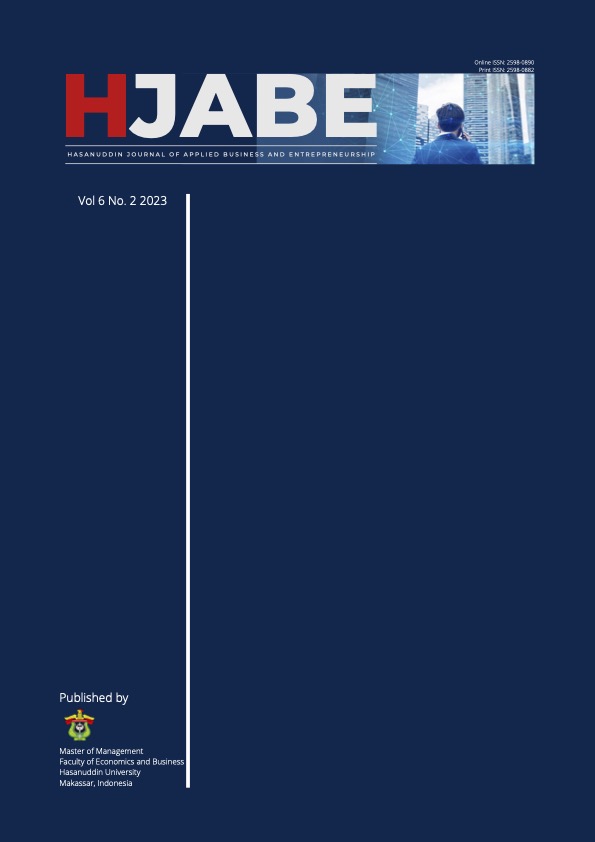THE EFFECT OF THE JOB DEMANDS-RESOURCES MODEL ON WORK ENGAGEMENT THROUGH JOB SATISFACTION IN MASTER MANAGEMENT STUDENTS AT HASANUDDIN UNIVERSITY
Keywords:
job demand, job satisfaction, work engagementAbstract
The aim of this study is to determine the effect of the JD-R Model on Work Engagement and Job Satisfaction of Master of Management Students at Hasanuddin University Makassar, the effect of job demand-resources either simultaneously or partially on work engagement, and the effect of job satisfaction both simultaneously and partially on work engagement. This research was a quantitative research by giving questionnaires to 65 students of Master of Management class of 2020-2021. The technique used to test the hypothesis is path analysis. The results of the study found that: (1) Job Resources had a positive and significant effect either simultaneously or partially on job satisfaction. (2) Job demand has a negative effect either simultaneously or partially on job satisfaction, this shows that the lower the job demand value for individuals, the higher the job satisfaction value, and vice versa. (3) Job Resources shows a positive effect both simultaneously and partially on work engagement and has a "low correlation" level of effect on work engagement. (4) Job demand has a significant effect either simultaneously or partially on work engagement, and there is a minus value in the calculation results which show a negative effect of job demand and is reducing work engagement. (5) Job satisfaction has a positive effect either simultaneously or partially on work engagement, where job satisfaction has a "slight correlation" effect on work engagement.


